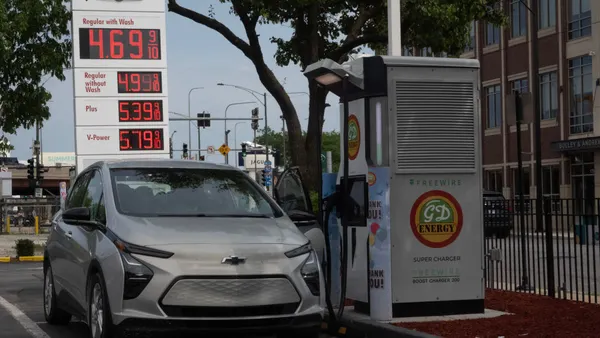Dive Brief:
- A Democratic congressional coalition last week introduced legislation to protect the safety and health of workers who are exposed to dangerous heat conditions in the work place.
- The bill is backed by the American Federation of State, County and Municipal Employees, United Farm Workers and United Steelworkers. Labor unions have previously called for policies that protect workers who report unsafe conditions and take breaks in extreme heat situations.
-
The proposed legislation would require the Occupational Safety and Health Administration to establish an enforceable standard to protect at-risk workers with measures including paid breaks in cool spaces, access to water, emergency response for workers with heat-related illness, and training and hazardous advisories about heat stress.
Dive Insight:
In July 2024, then-President Joe Biden proposed a measure to establish the first major federal safety standard protecting U.S. workers from injuries related to heat exposure. On January 20, President Donald Trump signed an executive order to freeze all pending federal rulemaking, including OSHA’s proposed heat safety regulations.
“OSHA still lacks a national standard to protect workers from heat exposure on the job,” said Rep. Bobby Scott of Virginia, one of the bill’s co-sponsors, during a press conference on Capitol Hill Wednesday. “This bill will end the delays and excuses, finally bringing workers the common-sense protections they deserve.”
Dorothy Bryant, president of AFSCME Local 44, representing city workers in Baltimore, urged legislators to pass the legislation in honor of Ronald Silver, a 36-year-old Baltimore sanitation worker who collapsed and died from heat stroke while working his route last August.
“His death shook our union family,” Bryant said. “We fought hard in the months that followed, organizing and mobilizing our community to say, ‘Not one more.’”
In September 2024, Maryland became the first state on the East Coast to enact statewide heat safety standards. Other states, including Florida and Texas, passed laws last year to forbid cities from requiring employers to provide water breaks to workers.
Rep. Alma Adams of North Carolina spoke of Wendy Johnson, a postal supervisor in Fayetteville, North Carolina, who died after spending hours in the back of a postal truck on a 95-degree day. “We’re fighting for workers who have needlessly lost their lives to heat illness,” she said. “These deaths are senseless, cruel and entirely preventable.”
AFSCME President Lee Saunders said in a statement that it is “well past time we adopt nationwide safeguards to better protect the workers who maintain our infrastructure, keep our streets clean, harvest our food, and keep our economy moving.”
Another of the bill’s co-sponsors, Sen. Ed Markey of Massachusetts, said 2025 is on track to become one of the hottest years in history and heat waves are becoming “more frequent, longer-lasting, and more severe.”
OSHA may still implement some version of a heat safety rule, observers say. The AFL-CIO applauded the selection of Lori Chavez-DeRemer as labor secretary, noting her history of supporting workers.











